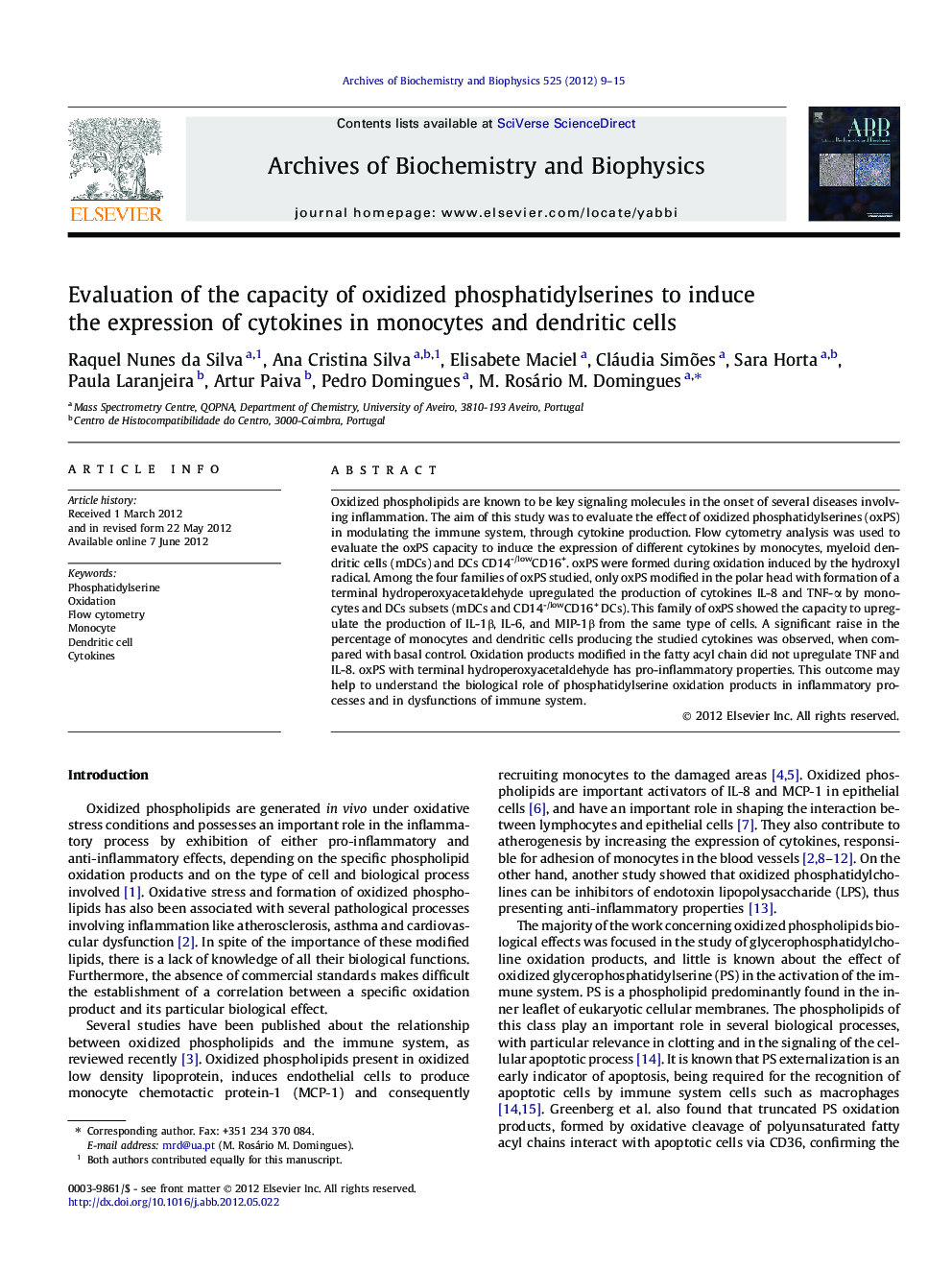| Article ID | Journal | Published Year | Pages | File Type |
|---|---|---|---|---|
| 1925497 | Archives of Biochemistry and Biophysics | 2012 | 7 Pages |
Oxidized phospholipids are known to be key signaling molecules in the onset of several diseases involving inflammation. The aim of this study was to evaluate the effect of oxidized phosphatidylserines (oxPS) in modulating the immune system, through cytokine production. Flow cytometry analysis was used to evaluate the oxPS capacity to induce the expression of different cytokines by monocytes, myeloid dendritic cells (mDCs) and DCs CD14-/lowCD16+. oxPS were formed during oxidation induced by the hydroxyl radical. Among the four families of oxPS studied, only oxPS modified in the polar head with formation of a terminal hydroperoxyacetaldehyde upregulated the production of cytokines IL-8 and TNF-α by monocytes and DCs subsets (mDCs and CD14-/lowCD16+ DCs). This family of oxPS showed the capacity to upregulate the production of IL-1β, IL-6, and MIP-1β from the same type of cells. A significant raise in the percentage of monocytes and dendritic cells producing the studied cytokines was observed, when compared with basal control. Oxidation products modified in the fatty acyl chain did not upregulate TNF and IL-8. oxPS with terminal hydroperoxyacetaldehyde has pro-inflammatory properties. This outcome may help to understand the biological role of phosphatidylserine oxidation products in inflammatory processes and in dysfunctions of immune system.
► Oxidized phospholipids are signaling molecules in inflammation. ► Oxidized phosphatidylserines (oxPS)2 modulate the immune system. ► oxPS with a terminal hydroperoxyacetaldehyde upregulate cytokines production. ► This oxPS upregulate the production of IL-8, TNF-α, IL-1β, IL-6, and MIP-1β. ► oxPS modified in head group showed dissimilar effects than oxPS modified in fatty acyl chains.
